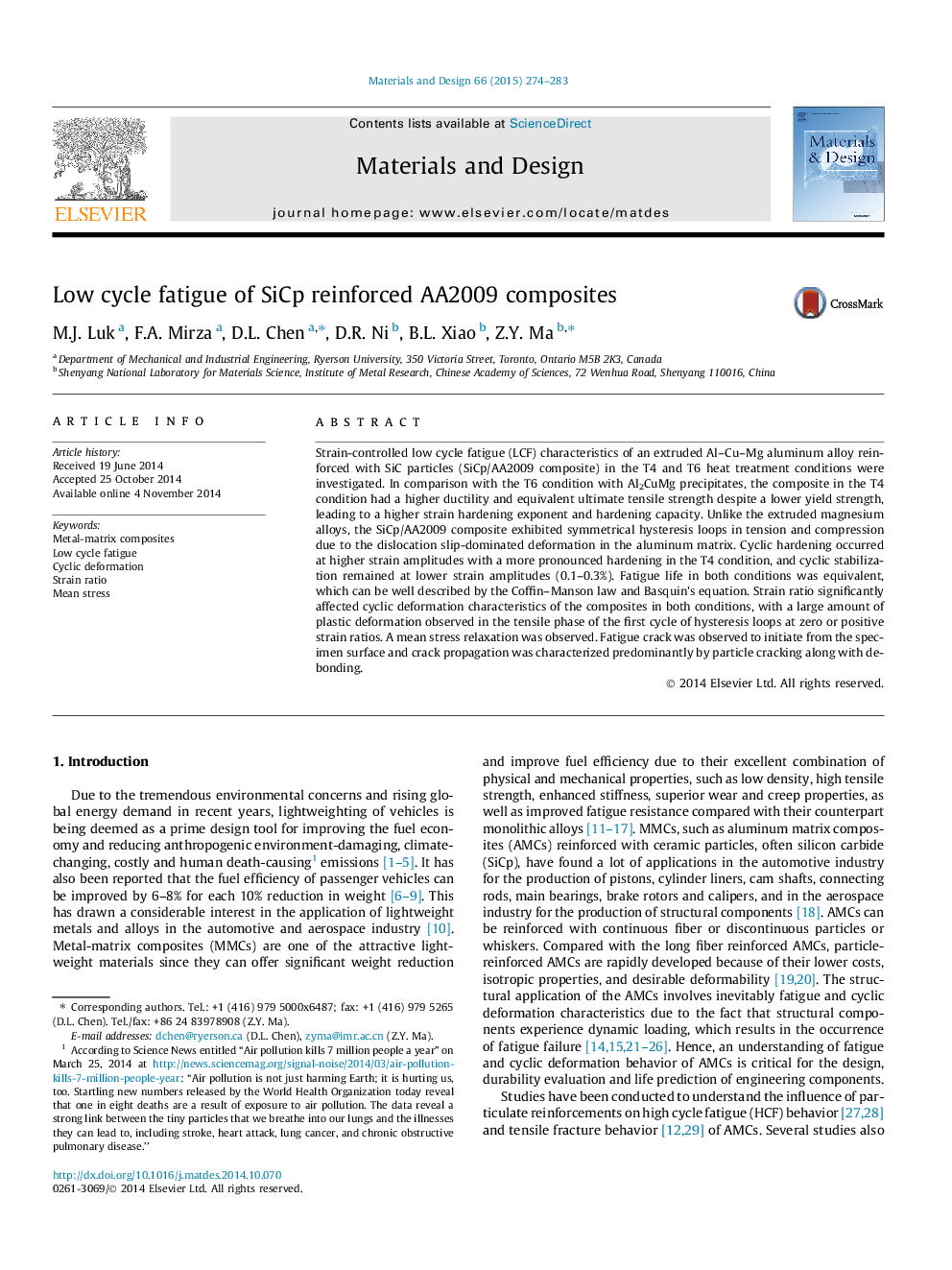| Article ID | Journal | Published Year | Pages | File Type |
|---|---|---|---|---|
| 10426506 | Materials & Design (1980-2015) | 2015 | 10 Pages |
Abstract
Strain-controlled low cycle fatigue (LCF) characteristics of an extruded Al-Cu-Mg aluminum alloy reinforced with SiC particles (SiCp/AA2009 composite) in the T4 and T6 heat treatment conditions were investigated. In comparison with the T6 condition with Al2CuMg precipitates, the composite in the T4 condition had a higher ductility and equivalent ultimate tensile strength despite a lower yield strength, leading to a higher strain hardening exponent and hardening capacity. Unlike the extruded magnesium alloys, the SiCp/AA2009 composite exhibited symmetrical hysteresis loops in tension and compression due to the dislocation slip-dominated deformation in the aluminum matrix. Cyclic hardening occurred at higher strain amplitudes with a more pronounced hardening in the T4 condition, and cyclic stabilization remained at lower strain amplitudes (0.1-0.3%). Fatigue life in both conditions was equivalent, which can be well described by the Coffin-Manson law and Basquin's equation. Strain ratio significantly affected cyclic deformation characteristics of the composites in both conditions, with a large amount of plastic deformation observed in the tensile phase of the first cycle of hysteresis loops at zero or positive strain ratios. A mean stress relaxation was observed. Fatigue crack was observed to initiate from the specimen surface and crack propagation was characterized predominantly by particle cracking along with de-bonding.
Related Topics
Physical Sciences and Engineering
Engineering
Engineering (General)
Authors
M.J. Luk, F.A. Mirza, D.L. Chen, D.R. Ni, B.L. Xiao, Z.Y. Ma,
